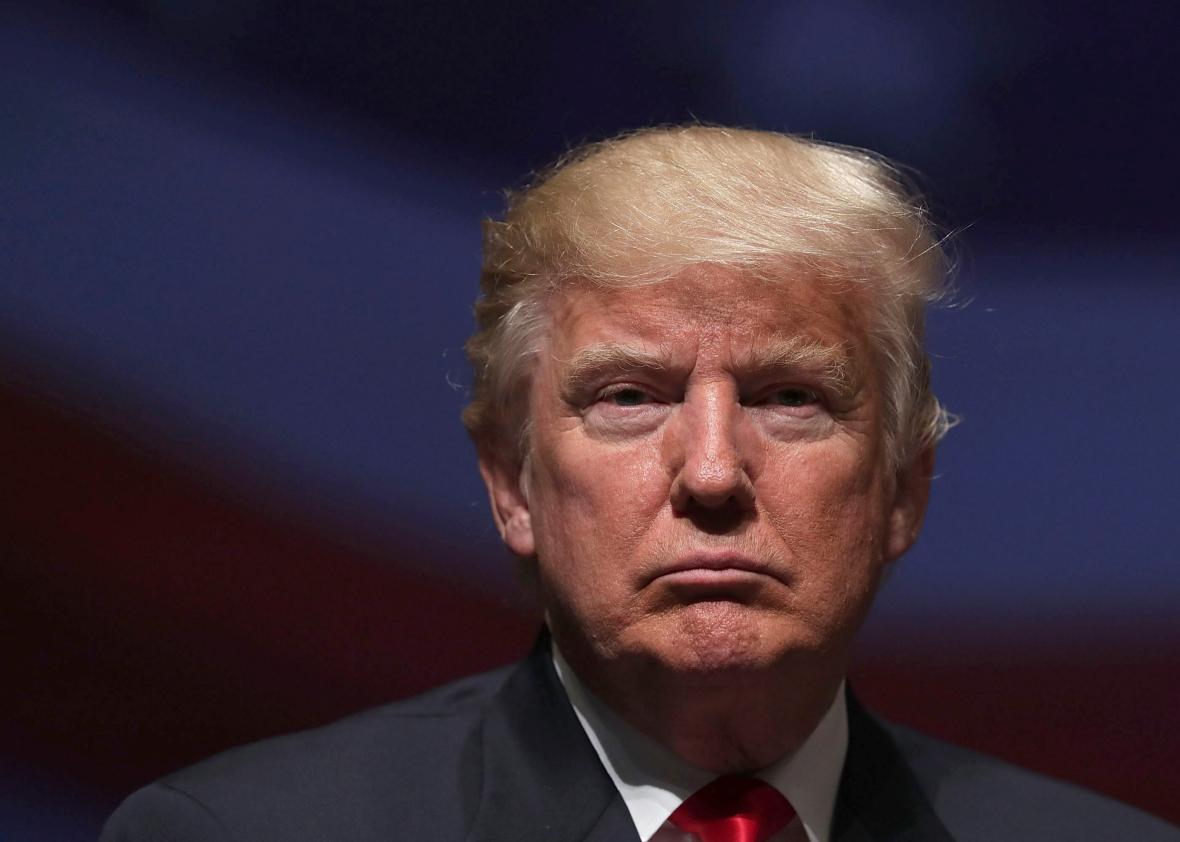When presidential candidates unveil major public policy proposals, they typically have a pretty firm idea of what’s going to be included in them. But Donald J. Trump is no ordinary presidential candidate. And more then 24 hours after announcing the latest iteration of his tax plan at a snazzy event in New York, it is unclear whether it will contain a trillion-dollar giveaway to wealthy businessmen and financiers—like him.
Isn’t this election fun?
As recently as last month, the Republican nominee was touting a plan that would have allowed all businesses to pay a single max tax rate of 15 percent. What made this proposal especially startling, not to mention wildly expensive, was that it wouldn’t have just applied to companies organized as C corporations—think Exxon, Apple, or Walmart—but also so-called pass-through entities, which include a whole alphabet soup of business types you might be familiar with, like LLCs, LLPs, and S-Corps. Pass-through entities don’t pay the corporate rate, which currently tops out at 35 percent. Instead, their profits are distributed directly to their owners, who then pay taxes on them as normal income. A lot of truly small businesses are set up this way. But so are hedge funds, private equity firms, real estate developers, and major law firms, whose partners would often pay a top rate of 39.6 percent on their earnings. Trump was essentially offering to cut their top tax rate by more than half.
Perhaps not coincidentally, the Trump Organization LLC is a pass-through entity.
It is hard to overstate what a truly terrible policy idea this is. You know how people complain about the carried interest rule that gives hedge fund and private equity guys a tax break? This is that on performance-enhancing drugs, a version that wouldn’t just help Wall Streeters, but businessmen like Trump himself and the well-paid lawyers who help him minimize his tax bill. It’s essentially a lite version of the disastrous tax cuts that have gutted the Kansas state budget. (There, the government completely eliminated taxes on pass-through income.) You will sometimes see “small business” lobbyists argue that giving corporations and pass-through entities the same tax rate will somehow “even the playing field” between them, but even that’s complete bunk. The money corporations earn gets taxed twice—once, on the corporate level, and second, when it’s distributed to shareholders as a dividend. With law firms and hedge funds or your local boutique, it’s only getting taxed once.
Anyway, when Trump announced his tax plan Thursday, it appeared he had experienced a momentary bout of sense and had nixed the 15 percent rate for pass-through businesses. Or so he told the conservative Tax Foundation, which he asked to estimate the cost of his plan. But then, as the New York Times’ Binya Appelbaum reported Friday, his campaign “privately reassured” the National Federation of Independent Business that it was still on board with the cut. “We have it directly from his campaign,” a spokesman told the paper.
Since then, the Tax Foundation’s analysts has been trying to pin the Trump campaign down on whether or not it supports the break. Last I talked to them, they still hadn’t had any success.
This is not a small amount of money we are talking about. Kyle Pomerleau, the Tax Foundation’s director of federal projects, told me that the pass-through giveaway would be worth about $1.5 trillion over a decade. (Previous reports suggested it was worth about $1 trillion.) However, that’s based on the tenuous assumption businesses won’t reincorporate as pass-throughs to take advantage of the incredibly low rates, which is exactly what happened in Kansas. (A lot of high-earners might also just incorporate themselves to get the break.) “In a way the $1.5 trillion is the optimistic score,” Pomerleau said. Keep in mind, without the pass-through break, Trump’s plan would supposedly cost $4.4 trillion—we’re talking about a 35 percent difference.
That all said, it’s almost not worth agonizing over the specifics of Trump’s tax vision. In the end, Trump would likely sign whatever tax cut House Speaker Paul Ryan hands him. And currently, the GOP’s ideologue-in-chief wants to cut the rate on pass-through entities to 25 percent. So a President Trump might have to settle on a slightly more modest version of his absolutely god-awful idea.
